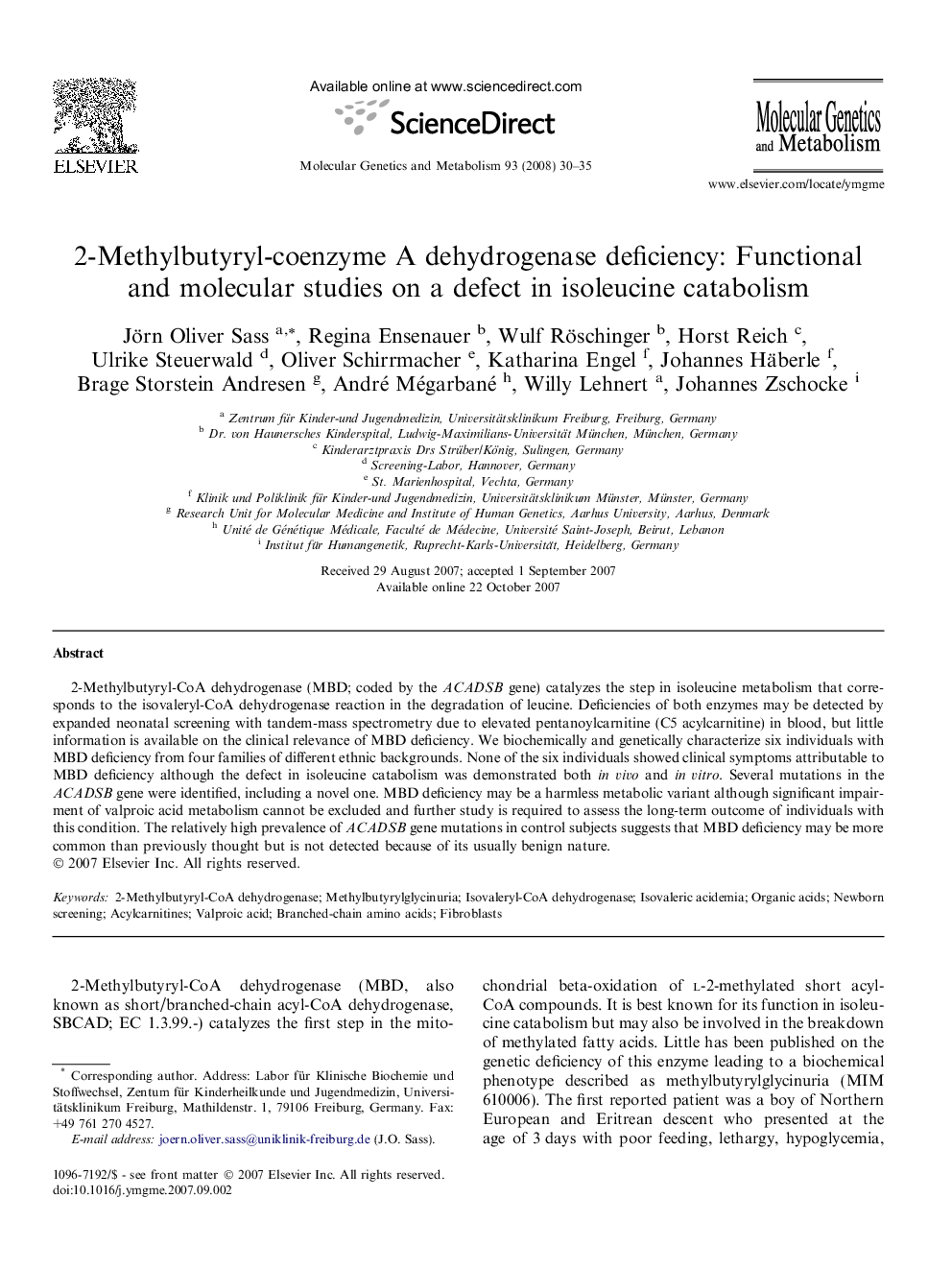| Article ID | Journal | Published Year | Pages | File Type |
|---|---|---|---|---|
| 2000027 | Molecular Genetics and Metabolism | 2008 | 6 Pages |
2-Methylbutyryl-CoA dehydrogenase (MBD; coded by the ACADSB gene) catalyzes the step in isoleucine metabolism that corresponds to the isovaleryl-CoA dehydrogenase reaction in the degradation of leucine. Deficiencies of both enzymes may be detected by expanded neonatal screening with tandem-mass spectrometry due to elevated pentanoylcarnitine (C5 acylcarnitine) in blood, but little information is available on the clinical relevance of MBD deficiency. We biochemically and genetically characterize six individuals with MBD deficiency from four families of different ethnic backgrounds. None of the six individuals showed clinical symptoms attributable to MBD deficiency although the defect in isoleucine catabolism was demonstrated both in vivo and in vitro. Several mutations in the ACADSB gene were identified, including a novel one. MBD deficiency may be a harmless metabolic variant although significant impairment of valproic acid metabolism cannot be excluded and further study is required to assess the long-term outcome of individuals with this condition. The relatively high prevalence of ACADSB gene mutations in control subjects suggests that MBD deficiency may be more common than previously thought but is not detected because of its usually benign nature.
